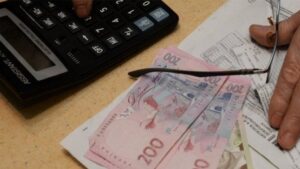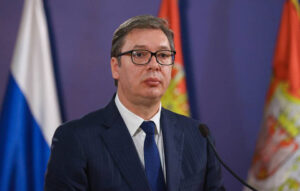
The volume of M&A in the world in 2025 exceeded $4 trillion for the first time since 2021, and the number of mega-deals has become a record, writes the Financial Times. According to the London Stock Exchange Group, the volume of M&A in 2025 increased by about 50% compared to 2024 and amounted to $4.5 trillion. This is the second highest figure in the more than forty-year history of tracking relevant data.
A record 68 mega-deals (valued at over $10 billion) were announced this year, many of which were transformational for their sectors.
Companies have taken advantage of favorable market conditions, availability of financing and relative regulatory leniency in the U.S. to strike strategic deals that would not have been possible in other environments.
“I haven’t seen such large M&A deals in a decade,” said Tony Kim, president of investment bank Centerview Partners. – Some of them have really transformed entire industries.”
Successful large mergers and acquisitions are only possible with a favorable combination of many important factors, which seems to be the case in 2025, he said.
Two of the biggest mega-deals of the past year were the purchase of the assets of media company Warner Bros. Discovery, for which Netflix Inc. and Paramount Skydance Corp. were competing, and the merger of rail operators Union Pacific and Norfolk Southern into a $250 billion-capitalization transcontinental giant.
A similar situation was seen in 2021, which remains a record year for M&A. At that time, the largest deals included the merger of media companies WarnerMedia and Discovery Inc. and the purchase by railroad operator Canadian Pacific Railway of its competitor Kansas City Southern.
Amid high M&A activity in 2025, investment banks generated near-record fees, earning $135 billion in investment banking – up 9% from a year earlier.
More than half of that amount came from deals in the U.S. M&A involving U.S. companies totaled $2.3 trillion this year, more than 51% of the global total (the highest since 1998).
https://www.fixygen.ua/news/20251229/obsyag-ma-u-sviti-2025-roku-dosyag-rivnya-2021-roku.html

The State Tax Service of Ukraine (STS) warns of probable restrictions in work from December 31, 2025 to January 2, 2026 due to routine and technical works. According to information in its Telegram channel, the works are related to the end of the budget year 2025 and the beginning of the budget year 2026.
“During this period there may be restrictions in the work of electronic services of the State Tax Service. December 31, 2025 – the last operational day of 2025 for the reception and processing of tax invoices and calculations of the adjustment to tax invoices to the Unified register of tax invoices, which will continue until 3 pm,” – explained STS.
At the same time, January 2, 2026 is defined as the first operational day of 2026 to accept for processing of tax invoices and adjustment calculations, information and communication systems of STS will work in normal mode.
The results of processing electronic documents, except for tax invoices and adjustment calculations, which will be received from 15:00 on December 31, 2025 to 15:00 on January 2, 2026, will be sent after the completion of routine and technical work.
Also in the STS emphasized that the fiscal server of the supervisory authority works in normal mode with possible restrictions at night.

Prices for sunflower seeds on the domestic Ukrainian market fell by more than 1,000 UAH/ton last week and amounted to about 26,000-27,600 UAH/ton (CPT-enterprise), which is the minimum level since the beginning of the 2025/2026 season, and only occasionally reached 28,000-28,300 UAH/tonne CPT, according to the information and analytical agency “APK-Inform”.
Analysts specified that indicative demand prices started at 25,000-25,400 UAH/tonne (CPT).
Experts explained that the slowdown in oilseed trade was significantly slowed down due to constant rocket and drone attacks on the ports of Odesa, which resulted in a decrease and, in some cases, suspension of product unloading.
According to their information, the shelling of seaports has increased the risks of storing oil in ports. As a result, a number of factories are suspending operations because they either do not have storage tanks at their facilities or they are already full.
In addition, there has been a significant decline in raw material prices on the market due to uncertainty about the future development of the sector.
“This has led to a reduction in the supply of sunflower seeds, which also coincided with the traditional lull during the holiday period, as a result of which market activity will remain weak in the coming weeks,” APK-Inform predicts.

The debt of the Ukrainian population for housing and communal services (HCS) in the third quarter of 2025 decreased by 5.4% compared to the previous quarter and amounted to UAH 100.8 billion. According to data from the State Statistics Service (SSS), Ukrainians paid a total of UAH 48.5 billion for housing and communal services in July-September 2025, which is 6.4% more than the amount charged, UAH 45.6 billion.
The debt for the reporting period for the supply of heat and hot water amounts to UAH 33.1 billion, the supply and distribution of natural gas – UAH 27.9 billion, the supply of electricity – UAH 16.5 billion, centralized water supply and sanitation – UAH 10.4 billion, apartment building management – UAH 9.5 billion, and household waste management – UAH 3.2 billion.
The highest level of debt for housing and communal services was recorded in Dnipropetrovsk (UAH 8.5 billion), Donetsk (UAH 4.3 billion), Poltava (UAH 3.2 billion), Kharkiv (UAH 1.9 billion), Kyiv (UAH 1.5 billion), Odesa (UAH 1.1 billion), Lviv (UAH 1 billion) regions and in Kyiv (UAH 2.8 billion).

According to Serbian Economist, Serbian President Aleksandar Vucic said that early parliamentary elections will be held in the country in 2026.
Speaking to supporters outside the National Assembly building, Vučić said that the authorities had agreed to the protesters’ main demand:
“We have accepted their main demand, and soon, next year, we will go to the polls. Only they will not be so happy when the votes are counted. We are going to defeat them everywhere in Serbia,“ he said.
The Tanjug news agency specifies that the president separately emphasized the need to comply with democratic rules and that ”the country should be ruled by those who receive the majority, not those who think it is better to set fire to buildings.”
No specific date has been set for early parliamentary elections yet. Vučić spoke of voting “next year” and made it clear that he expects a campaign in which the ruling Serbian Progressive Party (SNS) will try to confirm its dominance at the national level.
The last parliamentary elections in Serbia were held early in December 2023; at that time, Vučić’s party and its allies retained their majority in the Skupština amid protests by the opposition, which challenged the fairness of the vote.

Issue No. 2 – December 2025
The purpose of this review is to provide an analysis of the current situation on the Ukrainian currency market and forecast the hryvnia exchange rate against key currencies based on the latest data. We analyze current conditions, market dynamics, key influencing factors, and likely scenarios.
Analysis of the current situation on the currency market
International context
The second half of December 2025 was influenced by the third cut in the US Federal Reserve’s key policy rate this year, as well as expectations of a planned rate cut in the new year 2026. Most analysts believe that the latest key macroeconomic data support expectations that the Fed will continue to cut rates in 2026. Inflation in the United States fell more than expected to 2.7% year-on-year, while unemployment rose to 4.6%. These statistics allow the Fed to plan further rate cuts. The next meeting of the Fed Committee will take place in late January, and it will be known whether the rate cuts will take place at the beginning of the year or whether the Committee members will decide to postpone the next stage of monetary policy easing to March.
Meanwhile, the media was stirred up by the statement of the Donald Trump administration regarding its expectations for US GDP growth of 3% in 2026. Joe Lavorgna, an adviser to US Treasury Secretary Scott Bessent, noted that if the economy continues to grow by 3% next year due to increased supply, this will mean a decline in inflation. In his opinion, the Fed can continue to cut rates, and even said that the Fed should cut rates. Currently, the US is in a bit of euphoria over the fact that GDP for the third quarter was 4.3%, as consumer spending, which accounts for 70% of growth, and exports have both increased. Donald Trump also said that he expects the next Fed chairman to cut interest rates if the economy is doing well. It is currently known that the Fed has planned one rate cut in 2026, but in the end, everything will depend on the position of the new Fed chairman and the receipt of new statistics on inflation and the US labor market. It is possible that the rate will be cut twice, depending on the rate of real economic growth. Analysts also believe that any sharp decline in the artificial intelligence boom will require further rate cuts, as artificial intelligence has contributed to the lion’s share of GDP growth over the past year, both directly through business investment and indirectly through the rising stock market, which has stimulated consumer spending.
As expected, the key policy rate cut affected the behavior of the EUR/USD pair, and the dollar is weakening despite positive signals about the growth rate of the US economy. At the end of December, the rate was above $1.1772, so it continues to test new levels – closer and closer to the $1.1800 level previously predicted by analysts. In the future, the dollar is expected to weaken against the euro, in particular against the backdrop of central bank policy.
As for the stability of the euro, it is clear that the eurozone has managed to overcome the effects of Trump’s new tariffs faster and better than expected. Growth in Europe remains steady, with inflation hovering close to the ECB’s 2% target. At the end of 2025, the European Central Bank left its key deposit rate unchanged at 2%. According to the ECB, the eurozone’s GDP growth for the year will be 1.4%, compared to the previous estimate of 1.2%. For 2026, GDP growth is projected at 1.2%, and the eurozone economy will grow by 1.4% in 2027.
Domestic Ukrainian context
While in the first half of December, the hryvnia remained in the range of 42.26-42.33 UAH/USD (official exchange rate), in the second half of the last month of 2025, there were multidirectional fluctuations, when on December 18, there was a clear weakening of the hryvnia – the average value on the interbank market reached 42.40 UAH/USD, and the official exchange rate was 42.34 UAH/USD. However, in the following sessions of December, the market leveled off, in part due to the participation of the National Bank of Ukraine in the auction, and the hryvnia strengthened: the official exchange rate returned to below 42 UAH/USD. In October, the NBU sold $2.9 billion in foreign currency, and in November it sold $2.88 billion. It is likely that in December, interventions will also be no less than in November. In total, the NBU sold $34.6 billion on the market since the beginning of the year and through December 19.
December was a successful month for Ukraine, when it received multibillion-dollar tranches of funds from its partners. In the third decade of December, Ukraine received €2.3 billion under the Ukraine Facility program (the sixth tranche under the program), bringing the total amount of EU financial assistance in 2025 to more than €28.7 billion. The funds received help support the economy and ensure macrofinancial stability.
The NBU discount rate remained unchanged at the end of 2025, remaining at 15.5% per annum. The NBU said that it expects the risks associated with the adequacy and rhythm of external financing to ease, allowing the NBU to start a cycle of key policy rate cuts next year. The NBU’s Monetary Policy Committee believes that the key policy rate will be 12.5% at the end of 2026, but the balance of risks to inflation and the key policy rate trajectory has shifted upward in the wake of the war, so they do not rule out a tighter policy scenario.
Next year is not expected to be easy and predictable for the national currency, which is under considerable pressure in the context of the war due to the great uncertainty about the duration of hostilities and changes in the situation at the front, risks to the energy and industrial sectors in general, and high import needs for equipment, military equipment, and fuel. The trajectory of the exchange rate will depend on many factors, and one of the key ones will be the volume and rhythm of foreign aid inflows.
According to the EU, Ukraine needs $81 billion in additional financial assistance for defense and government operations in 2026. The good news in December was the approval of a €90 billion loan from the EU to Ukraine – the leaders of the EU member states reaffirmed their readiness to help Ukraine ensure financial sustainability in 2026-2027, in particular to cover urgent budgetary, military, and defense needs. The parties agreed to provide Ukraine with a €90 billion loan at the expense of EU borrowings in the capital markets, and Ukraine will repay the loan only after Russia compensates for the damage caused by the aggression.
US dollar exchange rate: dynamics and analysis
General characteristics of market behavior
In the second half of December, the US dollar initially strengthened on the Ukrainian market, but then the trend reversed. As a result, the hryvnia suddenly started to strengthen at the end of the year.
In general, the exchange rate changed in December as follows: on the interbank market, the selling rate at the beginning of the month was at 42.32 UAH/$, on December 18 – at 42.40 UAH/$, but on December 25, there was a pullback to 42.06 UAH/$.
On the cash market, the buying rate in December was in the range of UAH 41.6-42.10/$, and the selling rate was in the range of UAH 42.2-42.55/$. At bank cash desks, the spread between the buying and selling rates remained unchanged compared to November, amounting to UAH 0.45-0.6 per dollar.
Key factors of influence
1. International context. The dollar began to lose ground sharply against the euro as a result of the third Fed key rate cut in 2025, as well as expectations of the next round of easing in January 2026.
2. Ukraine continues to receive assistance from its partners: in the third decade of December, the country received €2.3 billion under the Ukraine Facility program, and the EU agreed on a €90 billion loan to Ukraine.
Forecast.
– Short-term (1-2 weeks): the basic range is 42.15-42.55 UAH/$ with possible multidirectional fluctuations.
– Medium-term (2-3 months): 42.30-43.50 UAH/$. On the international market, the dollar’s weakening will be influenced by the Fed’s monetary policy, i.e. further steps to reduce the key policy rate. In Ukraine, the hryvnia will be affected by factors such as the state budget deficit, the situation at the frontline, gas purchases, imports of energy equipment, and new aid inflows from partners.
– Longer term (6+ months): the depreciation trend will remain dominant, with the NBU’s ongoing interventions keeping exchange rate fluctuations smooth and the exchange rate trajectory flexible. The exchange rate target for the first half of 2026 is UAH 42.6-44.60/$.
Euro exchange rate: dynamics and analysis
General characteristics of market behavior
In December, the euro strengthened on the Ukrainian market: the official euro exchange rate was 48.89 UAH/€ in early December and 49.42 UAH/€ at the end of the month.
Key observations
Ø Exchange rate geometry:
o The selling rate for cash euros at the beginning of the month was at around UAH 49.45-49.50/€, and at the end of December it was at UAH 49.8-49.9/€. The dynamics of the euro exchange rate was influenced by the global market trend, where the euro strengthened, and was also reflected in the exchange rate by the growing demand for euros from importers on the interbank market.
Ø Supply and demand:
o Demand for euros has been at a high level for several months in a row, as domestic companies make payments to European sellers in euros. Demand on the cash market also remains strong, as well as expectations that the euro will soon cross the psychological mark of 50 UAH/€.
Key influencing factors
– Global context: The euro is strengthening as a result of the US’s gradual easing policy, which is reflected in the exchange rate trajectory in the direction of a weaker dollar and a stronger euro. The euro’s stability is also linked to the eurozone’s continued and steady economic growth and the overcoming of the challenges posed by Trump’s tariffs.
– Domestic market: demand for the euro in the cash segment remains stable, although the traditional trend of a temporary increase in the volume of cash sales by households, including the euro, is noticeable in the run-up to the Christmas and New Year holidays.
Forecast.
– In the short term (1-2 weeks), the euro will be in the range of 49.6-49.9 UAH/€ with the possibility of a temporary move to the level of 50 UAH/€.
– Medium-term (2-3 months): if the Fed cuts the rate by 25 bps in January, the euro will continue to strengthen, and fluctuations on the Ukrainian market may be in the range of UAH 49.9-52.80/€.
– Longer-term (6+ months): the euro is likely to rise in the first half of 2026 to the level of 52.20-56.80 UAH/€.
Recommendations: dollar or euro – buy, sell, or wait?
USD/UAH
For 2026, most forecasts are related to the continued growth of key economies and investment, in particular in new technologies and AI tools. However, there are restrained hopes for cautious economic growth, so we cannot expect explosive growth in the economies of the United States, the European Union, China, and Japan. Meanwhile, the US dollar will be influenced by the US Federal Reserve’s monetary policy, uncertainty about the new Fed chairman and his attitude to the implementation of the inflation control strategy.
The scenario of further weakening of the US currency amid rate cuts and the situation in the US labor market remains highly likely. There may also be unexpected “black swans” in 2026, as geopolitical tensions persist, in particular due to the ongoing war in Ukraine, and there are risks associated with the high debt burden of developed countries. Experts also see another risk as threatening: the rapid development of artificial intelligence could create an economic bubble and increase fears about the future labor market.
In this situation, investors should consider both liquid currencies (dollar, euro) and gold, which is a traditional safe haven for capital in times of uncertainty and high risks, when planning future investments.
EUR/UAH
The euro currency is strengthening in the global and domestic markets, but is subject to multidirectional trajectories, which may complicate the investment program for this currency. It is likely that the euro will have a chance to strengthen globally in the coming months. For Ukrainian investors, the euro will remain one of the most important areas of the currency accumulation strategy, although the US dollar will have a predominant place in the portfolio for long-term planning.
Overall strategy
Next year will certainly be challenging for investors, as the possibility of uneven exchange rate fluctuations remains, both due to the Fed’s monetary policy and the ongoing economic challenges for key global economies. As the US continues its easing policy, the dollar may continue to weaken, while the euro is likely to strengthen thanks to the ECB’s steady policy and positive forecasts for the eurozone’s economic development.
In the medium- and long-term investment strategy, the dollar will retain its dominant position, as the US currency remains the main reserve currency and plays a leading role for central banks and global investments. Thus, in Ukraine, the US dollar will have a major share in investors’ foreign currency savings. Meanwhile, the country’s proximity to the EU, close business ties with eurozone countries, and the steady strengthening of the euro allow it to be included in various foreign exchange savings programs.
In 2026, most forecasts are associated with a gradual weakening of the hryvnia exchange rate, which is reflected in both the State Budget Law and the requirements of the International Monetary Fund. Demand for cash and non-cash foreign currency will remain high. Fluctuations in Ukraine’s interbank market will be smoothed out by the NBU’s interventions, which will maintain its policy of exchange rate flexibility in the face of war and heightened economic challenges. The expected weakening of the hryvnia will allow investors to build a reliable portfolio of savings in liquid currencies and partially focus on gold assets. The US dollar and the euro will remain the main currencies for investment strategies.
This material was prepared by analysts of the international multiservice FinTech product platform KYT Group and reflects their expert, analytical professional judgment. The information presented in this review is for informational purposes only and cannot be considered as a recommendation for action.
The Company and its analysts make no representations and assume no liability for any consequences arising from the use of this information. All information is provided “as is” without any additional warranties of completeness, obligations of timeliness or to update or supplement.
Users of this material should make their own risk assessment and informed decisions based on their own evaluation and analysis of the situation from various available sources that they consider to be sufficiently qualified. We recommend that you consult an independent financial advisor before making any investment decisions.
REFERENCE
KYT Group is an international multi-service marketplace FinTech product platform that provides financial companies with access to services for promoting their services, as well as advertising and consulting services.